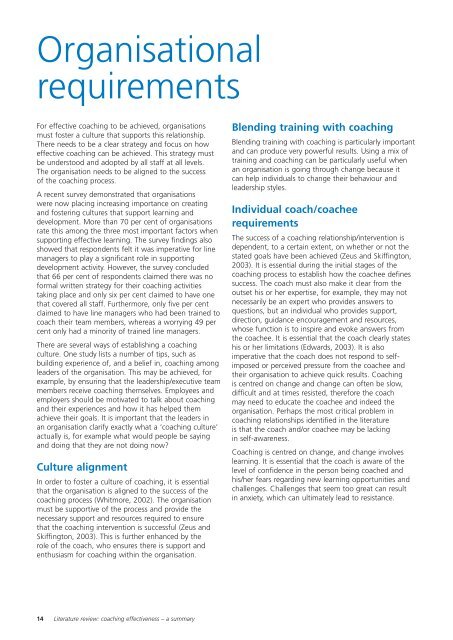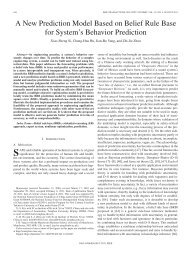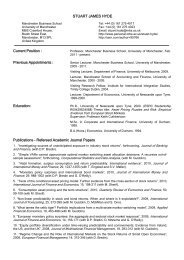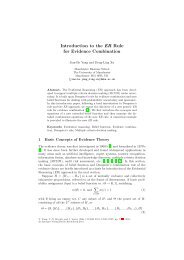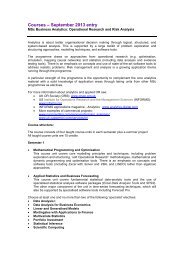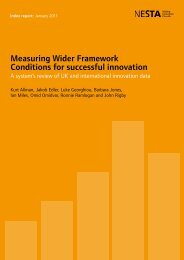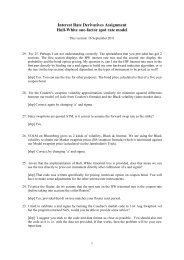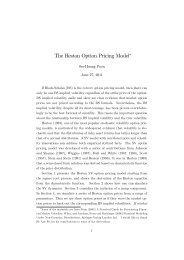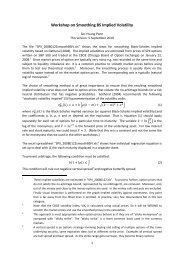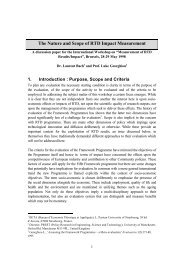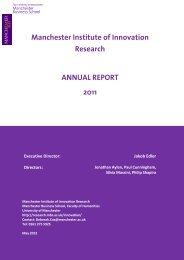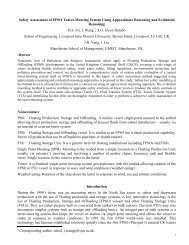Literature review: coaching effectiveness â a summary
Literature review: coaching effectiveness â a summary
Literature review: coaching effectiveness â a summary
You also want an ePaper? Increase the reach of your titles
YUMPU automatically turns print PDFs into web optimized ePapers that Google loves.
Organisational<br />
requirements<br />
For effective <strong>coaching</strong> to be achieved, organisations<br />
must foster a culture that supports this relationship.<br />
There needs to be a clear strategy and focus on how<br />
effective <strong>coaching</strong> can be achieved. This strategy must<br />
be understood and adopted by all staff at all levels.<br />
The organisation needs to be aligned to the success<br />
of the <strong>coaching</strong> process.<br />
A recent survey demonstrated that organisations<br />
were now placing increasing importance on creating<br />
and fostering cultures that support learning and<br />
development. More than 70 per cent of organisations<br />
rate this among the three most important factors when<br />
supporting effective learning. The survey findings also<br />
showed that respondents felt it was imperative for line<br />
managers to play a significant role in supporting<br />
development activity. However, the survey concluded<br />
that 66 per cent of respondents claimed there was no<br />
formal written strategy for their <strong>coaching</strong> activities<br />
taking place and only six per cent claimed to have one<br />
that covered all staff. Furthermore, only five per cent<br />
claimed to have line managers who had been trained to<br />
coach their team members, whereas a worrying 49 per<br />
cent only had a minority of trained line managers.<br />
There are several ways of establishing a <strong>coaching</strong><br />
culture. One study lists a number of tips, such as<br />
building experience of, and a belief in, <strong>coaching</strong> among<br />
leaders of the organisation. This may be achieved, for<br />
example, by ensuring that the leadership/executive team<br />
members receive <strong>coaching</strong> themselves. Employees and<br />
employers should be motivated to talk about <strong>coaching</strong><br />
and their experiences and how it has helped them<br />
achieve their goals. It is important that the leaders in<br />
an organisation clarify exactly what a ‘<strong>coaching</strong> culture’<br />
actually is, for example what would people be saying<br />
and doing that they are not doing now?<br />
Culture alignment<br />
In order to foster a culture of <strong>coaching</strong>, it is essential<br />
that the organisation is aligned to the success of the<br />
<strong>coaching</strong> process (Whitmore, 2002). The organisation<br />
must be supportive of the process and provide the<br />
necessary support and resources required to ensure<br />
that the <strong>coaching</strong> intervention is successful (Zeus and<br />
Skiffington, 2003). This is further enhanced by the<br />
role of the coach, who ensures there is support and<br />
enthusiasm for <strong>coaching</strong> within the organisation.<br />
Blending training with <strong>coaching</strong><br />
Blending training with <strong>coaching</strong> is particularly important<br />
and can produce very powerful results. Using a mix of<br />
training and <strong>coaching</strong> can be particularly useful when<br />
an organisation is going through change because it<br />
can help individuals to change their behaviour and<br />
leadership styles.<br />
Individual coach/coachee<br />
requirements<br />
The success of a <strong>coaching</strong> relationship/intervention is<br />
dependent, to a certain extent, on whether or not the<br />
stated goals have been achieved (Zeus and Skiffington,<br />
2003). It is essential during the initial stages of the<br />
<strong>coaching</strong> process to establish how the coachee defines<br />
success. The coach must also make it clear from the<br />
outset his or her expertise, for example, they may not<br />
necessarily be an expert who provides answers to<br />
questions, but an individual who provides support,<br />
direction, guidance encouragement and resources,<br />
whose function is to inspire and evoke answers from<br />
the coachee. It is essential that the coach clearly states<br />
his or her limitations (Edwards, 2003). It is also<br />
imperative that the coach does not respond to selfimposed<br />
or perceived pressure from the coachee and<br />
their organisation to achieve quick results. Coaching<br />
is centred on change and change can often be slow,<br />
difficult and at times resisted, therefore the coach<br />
may need to educate the coachee and indeed the<br />
organisation. Perhaps the most critical problem in<br />
<strong>coaching</strong> relationships identified in the literature<br />
is that the coach and/or coachee may be lacking<br />
in self-awareness.<br />
Coaching is centred on change, and change involves<br />
learning. It is essential that the coach is aware of the<br />
level of confidence in the person being coached and<br />
his/her fears regarding new learning opportunities and<br />
challenges. Challenges that seem too great can result<br />
in anxiety, which can ultimately lead to resistance.<br />
14 <strong>Literature</strong> <strong>review</strong>: <strong>coaching</strong> <strong>effectiveness</strong> – a <strong>summary</strong>


